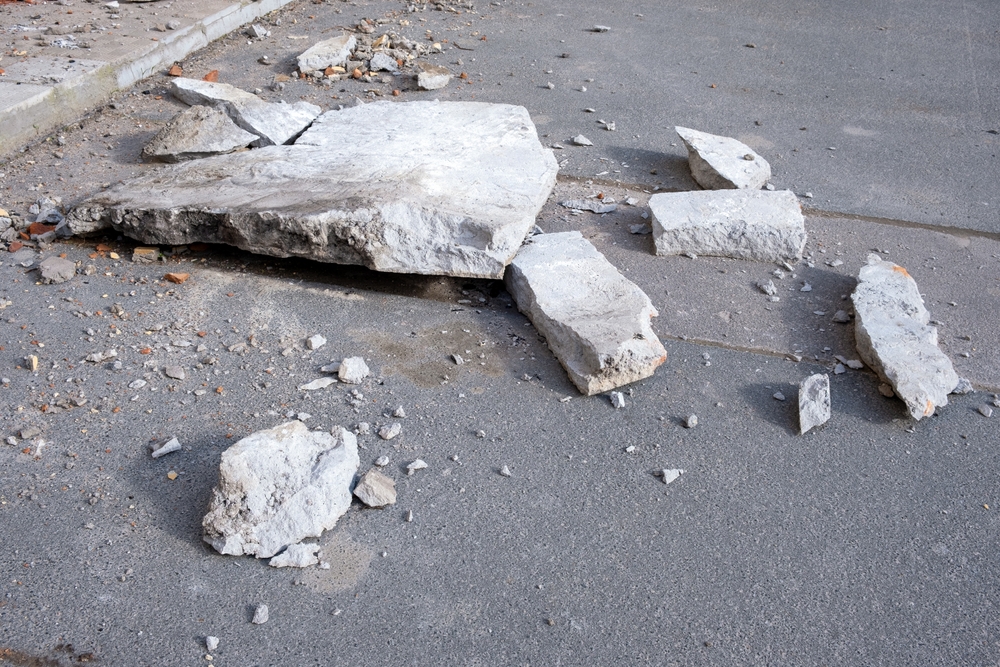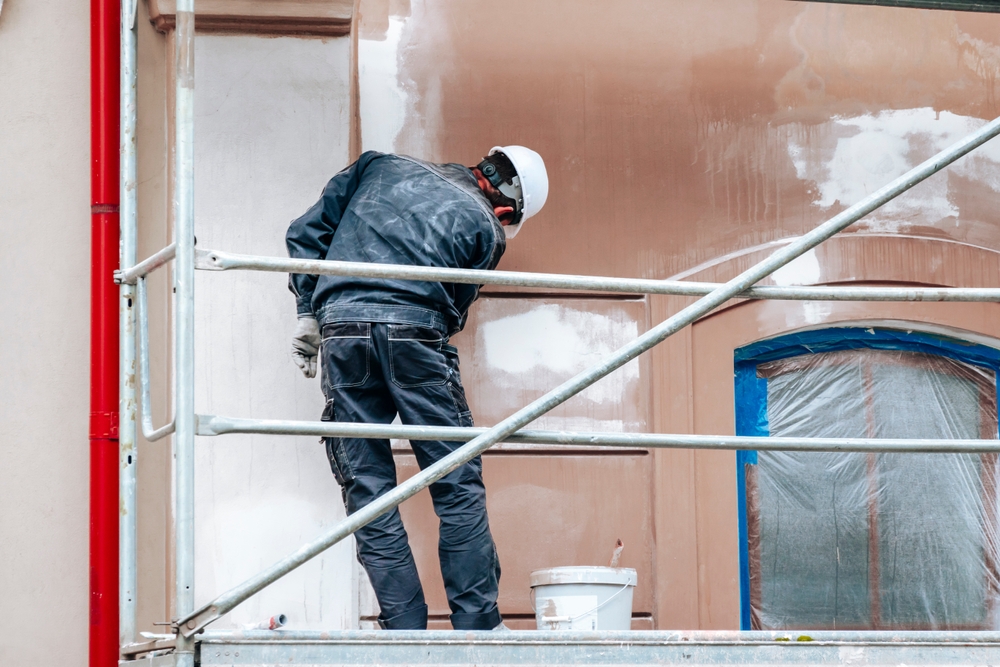May 13, 2024 - Benjamin Ehinger
Pros and Cons of Plastic Bags: Environmental Impacts and Practical Uses
CALL NOW 844-762-8449
Plastic bags have long been a staple for consumers worldwide, offering convenience and strength for carrying a variety of goods. Their lightweight nature and durability make them particularly useful for transporting groceries and other retail items. However, the widespread use of single-use plastic bags has raised significant environmental concerns. These bags are often not recycled, leading to accumulation in landfills and natural habitats where they can take hundreds of years to decompose.
From an economic perspective, the production and disposal of plastic bags present both advantages and disadvantages. The cost of producing plastic bags is relatively low, making them an economical choice for stores and shoppers alike. However, the environmental costs of dealing with plastic waste are leading many cities and countries to reconsider their use. Legislation aimed at reducing plastic bag usage has been implemented in various regions, with some areas imposing bans and others encouraging the adoption of reusable alternatives.
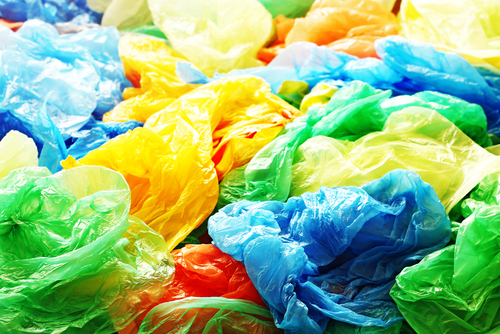 When you consider the economic aspects of plastic bags, it’s important to examine both the manufacturing process and the long-term financial implications of cleanup and disposal efforts. These elements together shape the economic impact of plastic bags on our society.
When you consider the economic aspects of plastic bags, it’s important to examine both the manufacturing process and the long-term financial implications of cleanup and disposal efforts. These elements together shape the economic impact of plastic bags on our society.
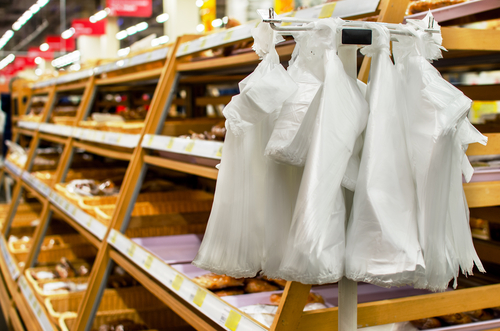 Plastic bags offer specific benefits in terms of convenience, weight, and resilience, which remain key factors in their widespread usage.
Plastic bags offer specific benefits in terms of convenience, weight, and resilience, which remain key factors in their widespread usage.
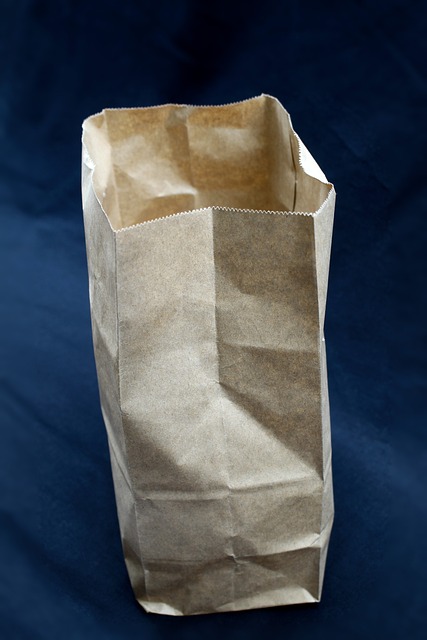 As you consider reducing your carbon footprint, exploring alternatives to plastic bags is a responsible step. These substitutes are diverse, each with unique benefits and drawbacks related to sustainability and practicality.
As you consider reducing your carbon footprint, exploring alternatives to plastic bags is a responsible step. These substitutes are diverse, each with unique benefits and drawbacks related to sustainability and practicality.
Key Takeaways
- Plastic bags are convenient and durable but contribute to environmental pollution.
- Economic considerations of production and disposal influence plastic bag policies.
- Regulations are increasing globally to mitigate plastic bags’ environmental impact.
Historical Context of Plastic Bag Usage
Before exploring the historical context of plastic bag usage, you should be aware of their evolution from a novel invention to a global phenomenon. This section delves into the initial rise of these bags and how they became an integral part of daily commerce worldwide.Rise of Single-Use Plastic Bags
In the late 1950s, the Swedish company Celloplast developed the design for the modern plastic bag, transforming the retail world forever. It was in this period that the concept of single-use plastic bags began taking shape as an alternative to cloth and paper bags. With their durability, low cost, and convenience, these bags quickly appealed to retailers looking for efficient customer service solutions.Global Adoption and Spread
By the 1980s, major supermarkets in the United States, including Safeway and Kroger, started to shift towards these plastic bags. This adoption signalled a turning point, as it led to a surge in usage across the country. Not long after, the phenomenon spread globally. Countries like China adopted plastic bags to such an extent that they became a significant contributor to the plastic waste problem. In response to the environmental impact, states such as California and New York took legislative actions to curb the use of plastic bags. Your understanding of plastic bags’ historical context extends beyond just their inception; it is also colored by this global spread and the subsequent environmental actions taken by different governments to mitigate the ecological footprint of plastic waste.Environmental Impact of Plastic Bags
When you consider the environmental impact of plastic bags, you must look at their effect on pollution levels, wildlife health, and waste management systems.Pollution and Wildlife
Plastic bags contribute significantly to environmental pollution. They are not biodegradable and can persist in the environment for hundreds of years, causing soil, air, and water pollution. Your local wildlife is at risk too; animals often mistake plastic bags for food, which can result in fatal blockages in their digestive systems. This environmental impact is far-reaching, affecting numerous species on land and in the air.Oceans and Waterways
In reference to the oceans, plastic bags are notorious for their part in forming vast garbage patches, with one of the most infamous being the Great Pacific Garbage Patch. These bags choke marine life, disrupt habitats, and even enter the food chain. Consequently, the health of your oceans and waterways is directly linked to how these plastic products are managed.Landfills and Waste Management
Lastly, your local landfills are teeming with these materials. Despite how lightweight they are, plastic bags take up a disproportionate amount of space in landfills due to their volume and low decomposition rate. Effective waste management is essential; when shopping bags are banned, there’s often an increase in purchased plastic trash bags, which can offset the environmental benefits of such policies. Managing this waste responsibly is crucial for reducing the overall environmental footprint of plastic bags.Economic Aspects of Plastic Bag Production and Disposal
 When you consider the economic aspects of plastic bags, it’s important to examine both the manufacturing process and the long-term financial implications of cleanup and disposal efforts. These elements together shape the economic impact of plastic bags on our society.
When you consider the economic aspects of plastic bags, it’s important to examine both the manufacturing process and the long-term financial implications of cleanup and disposal efforts. These elements together shape the economic impact of plastic bags on our society.
Manufacturing and Resource Usage
The production of plastic bags consumes significant amounts of oil and natural gas, both non-renewable resources. It is estimated that the energy required to produce a high volume of plastic bags could power millions of homes. The reliance on these fossil fuels contributes to a higher carbon footprint for each bag.- Petroleum: A primary resource for making plastic bags.
- Natural Gas: Also used in forming plastic materials.
- Energy: Required to power manufacturing plants.
Cleanup and Maintenance Costs
Post-consumer cleanup and maintenance efforts to manage plastic bag waste demand a substantial economic investment from local governments. These costs can be reflected in the taxes you pay or the prices you see in stores.- Cleanup operations: Can cost cities millions annually.
- Maintenance: Facilities for sorting and recycling require funding.
Legislation and Regulations
As you navigate the complex landscape of regulations surrounding plastic bags, it’s important to be aware of various legislative approaches aimed at reducing plastic bag usage. These include outright bans, implementation of fees and taxes, and the resulting impact these regulations have on consumer behavior.Plastic Bag Bans
Many governments around the world have implemented plastic bag bans to curb the environmental impact of single-use plastics. For instance, the European Union took decisive action in 2015 with legislation aiming to drastically cut plastic bag use, compelling member states to halve their usage by 2019 and again by 2025. More specifically, France banned single-use plastic bags in 2016, setting an example within the EU for strong regulatory measures. Similarly, in the United States, states like New Jersey and cities including Portland, Oregon, have seen significant reductions in plastic bag consumption due to enacted bans.Fees and Taxes Implementation
In addition to bans, some regions have opted for the implementation of fees and taxes on plastic bags. This economic strategy is designed to incentivize consumers to reduce their reliance on plastic bags. Policymakers argue that by attaching a monetary value to the use of plastic bags, it will prompt you to consider alternatives or reuse bags more frequently.Impact of Regulations on Usage
The cumulative effect of these bans and fees appears to be a notable reduction in plastic bag usage. For example, a study found that plastic bag bans in certain U.S. states and cities have led to a decrease of approximately 6 billion single-use plastic bags per year. This data suggests that these legislative measures are effective in encouraging a shift in consumer behavior, leading you towards more sustainable practices.Advantages of Plastic Bags
 Plastic bags offer specific benefits in terms of convenience, weight, and resilience, which remain key factors in their widespread usage.
Plastic bags offer specific benefits in terms of convenience, weight, and resilience, which remain key factors in their widespread usage.
Convenience Factor
You experience the convenience of plastic bags every time you shop. They are readily available, easy to carry, and can handle a variety of your purchases. Their lightness and collapsibility mean they don’t add significant weight to your groceries, and they fold up compactly, taking up minimal space in your home or car.Durability and Strength
Plastic bags are valued for their durability. They are not easily ripped or torn when you are carrying heavy items. This resilience extends to their resistance to water and other environmental elements, ensuring your items stay dry and protected from spills. Their strength means you can reuse them multiple times for a variety of purposes.Health and Safety Considerations
In considering the health and safety implications of plastic bags, you must be aware of how they may impact public health, particularly in the context of disease transmission, and understand the potential health effects of their chemical composition.Plastic Bags and Public Health
Plastic bags, often lightweight and easily carried by wind and water, can clog waterways and provide breeding grounds for disease-carrying mosquitoes, which could increase the spread of vector-borne diseases like malaria. Your awareness of these consequences is essential, especially in areas prone to such diseases.Chemical Composition and Health Effects
The chemicals used to produce plastic bags, including phthalates, can potentially affect human health. Phthalates are known to disrupt the endocrine system and may result in adverse developmental, reproductive, and neurological effects. It is important for you to consider that health effects from these chemicals might arise through direct contact with the bags or indirectly through environmental exposure.Alternatives to Plastic Bags
 As you consider reducing your carbon footprint, exploring alternatives to plastic bags is a responsible step. These substitutes are diverse, each with unique benefits and drawbacks related to sustainability and practicality.
As you consider reducing your carbon footprint, exploring alternatives to plastic bags is a responsible step. These substitutes are diverse, each with unique benefits and drawbacks related to sustainability and practicality.
Reusable Bags
Reusable bags are a sturdy, long-lasting choice. Fabric bags, made from materials like cotton or canvas, require more resources to produce but offset these costs with their longevity — a cotton bag should be used at least 50 times to surpass the environmental efficiency of plastic bags. Synthetic bags, typically made from materials like nylon or polyester, are another durable alternative that you can easily clean and reuse multiple times.- Pros:
- Durable and long-lasting
- Reduces single-use plastic consumption over time
- Cons:
- Higher initial resource use for production
- Requires commitment to regular use and maintenance
Paper Bags
Paper bags, which you can often recycle, have a lower environmental impact at the end of their life cycle. They are fabricated from a renewable resource and are biodegradable, making them a relatively eco-friendlier choice. However, they are less resilient compared to other alternatives and often require a secondary use like composting to fully realize their environmental benefits.- Pros:
- Biodegradable and compostable
- Made from renewable resources
- Cons:
- Not as durable as other reusable options
- Higher energy use during production
Compostable Bags
Compostable bags, usually made from biological materials such as cornstarch, are designed to break down into non-toxic components after use. These are a good option for reducing the persistence of plastic pollutants in the environment. However, they only decompose under specific conditions that are often only met in industrial composting facilities.- Pros:
- Biodegrades into non-toxic components
- Reduces long-term pollution
- Cons:
- Requires specific conditions to compost effectively
- Not as readily available as other options
Challenges in Phasing Out Plastic Bags
As you consider the future without plastic bags, it’s critical to understand the hurdles that come with removing these items from your daily routine.Transition Difficulties
The transition away from plastic bags often involves a significant shift in consumer behavior. You’re accustomed to the convenience of these lightweight carriers, and finding alternatives that match their cost and practicality isn’t straightforward. Adapting to substitutes can require a period of adjustment, as you learn to remember reusable bags and perhaps even deal with the inconvenience of less durable or waterproof options.Economic Disruption
Phasing out plastic bags can lead to economic implications for industries and workers involved in their production and distribution. You may observe job losses in the plastic manufacturing sector as demand for single-use bags dwindles. Moreover, there can be an economic impact on local businesses, particularly small retailers, who may struggle with the added costs of alternative bagging solutions or face customer frustration over the lack of plastic bags. Transition strategies must be finely balanced to protect these stakeholders while moving toward a more sustainable future.Environmental Advocacy and Education
In the context of plastic bags, your understanding of environmental advocacy and education is crucial in addressing their impact on the environment. Knowledgeable nonprofits and targeted public awareness campaigns play a pivotal role in equipping you with information and actionable strategies.Role of Nonprofits and Community Groups
Nonprofits and community groups are the backbone of environmental advocacy. They work to gather data on the effects of plastic bags and lobby for changes in policies and practices. For example, organizations may conduct research on how plastic bags contribute to plastic pollution in the oceans, which provides you with hard facts about the scale of the problem. Additionally, they often extend their efforts to educational programs, empowering you to make informed choices about the products you use and how to dispose of them properly.Public Awareness Campaigns
Public awareness campaigns, strategically designed by these groups, aim to shift behaviors and norms. These campaigns might spotlight the durability of plastic bags that leads to their longevity in the environment. They can encapsulate statistics, like the number of plastic bags used globally, and articulate the potential benefits of policy changes, such as those seen in the European Union’s plastic bag regulations. Your increased awareness then translates into a community that is better informed about the choices that can lead to significant environmental benefits.Impact on Climate Change
When you consider the environmental footprint of plastic bags, their role in climate change is significant through the production and disposal processes that generate greenhouse gas emissions.Plastic Bags and Greenhouse Gas Emissions
The production of plastic bags primarily uses polyethylene, which is derived from fossil fuels. During this process, significant amounts of carbon emissions are released. According to a study by the Environment Agency in the United Kingdom, the manufacturing of a plastic bag produces around 45.4 grams of nitrogen oxides. Furthermore, each stage of a plastic bag’s life cycle, from extraction of raw materials to disposal, contributes to the emission of various greenhouse gases.Contribution to Global Warming
After use, plastic bags often end up in landfills where they can take hundreds of years to decompose, all the while emitting methane—a potent greenhouse gas. The cumulative effect of these emissions can exacerbate global warming. For instance, a comparison suggests that reusing a cotton bag 131 times would make its contribution to global warming lower than that of a single-use plastic bag. This highlights the importance of considering the lifetime impact of bags you use in relation to climate change.Frequently Asked Questions
In this section, you’ll find concise answers to common inquiries about the intricacies of plastic bag usage, including environmental, economic, and practical aspects.What are the environmental impacts of using plastic bags?
Plastic bags contribute to pollution and can take hundreds of years to decompose in landfills. Their production also involves the consumption of fossil fuels and the emission of greenhouse gases.How do plastic bags affect wildlife and marine life?
Wildlife and marine creatures often mistake plastic bags for food, leading to ingestion and entanglement. This can cause severe injuries, digestive problems, and even death.What are the economic implications of banning plastic bags?
Banning plastic bags can reduce environmental cleanup costs and the burden on waste management systems. However, it can also impact the plastic manufacturing industry and potentially increase costs for retailers who must switch to alternatives.In what ways are plastic bags beneficial for retailers and consumers?
For retailers and consumers, plastic bags offer convenience due to their lightweight nature and low cost. They are strong and versatile, suitable for carrying a variety of items.How does the production of plastic bags compare environmentally to alternative materials?
The production of lightweight plastic bags often requires less energy and water than alternatives like paper or cotton bags, which need more resources to produce and may have higher initial environmental impacts.What are the potential consequences of a complete ban on plastic bags for local communities?
A complete ban on plastic bags can lead to shifts in consumer behavior and encourage the adoption of reusable bags. However, it may also require adaptation periods for retailers and consumers to find suitable substitutes that fulfill their needs.RECENT BLOGS
Our Reviews
Glenda Lanier Prowell
1721758635
I have ordered an 11 yard dumpster to be delivered to my house.Lonier was extremely helpful and answered all my questions. The rate was very reasonable.
Cedric Smikle
1721660395
Amber was extremely professional and courteous. She answered all of my questions and even some that I didn’t know I needed to ask.
Cait Kaider
1721243051
I highly recommend Waste Removal USA for their responsiveness and how the staff work hard to provide exceptional customer service. They have done well by us and our clients. Thank you!
Easom Family
1721223306
Louiner Pierre-Louis Is awesome! Did a great job. Will definitely be using this same company for all my dumpster needs because of his awesome customer service! Thank you!!!
tabitha Vazquez
1720539988
Wonderful and fast customer service!
LATEST BLOGS



